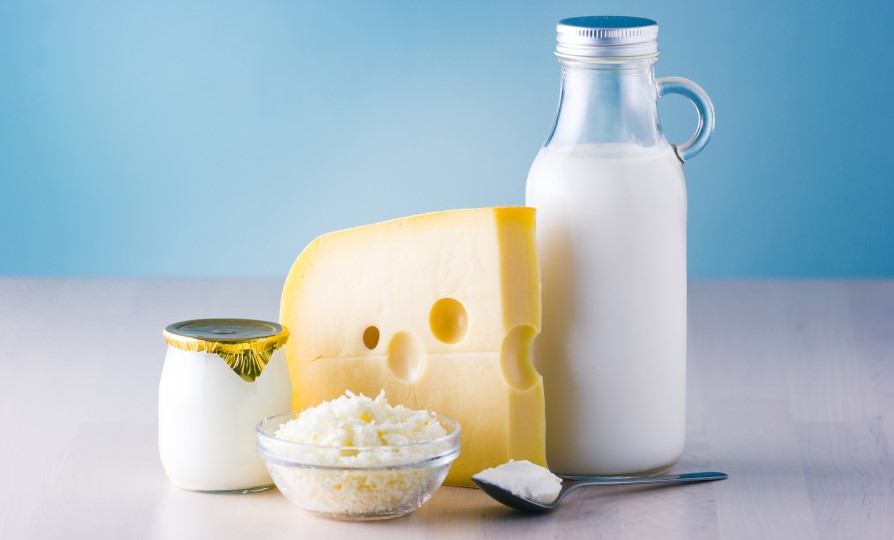Following dental implant surgery, patients often hear advice to avoid dairy afterwards. This common guidance understandably sparks curiosity and concern about the role of dairy in healing. In this comprehensive article, we thoroughly examine the validity of eliminating dairy after getting dental implants.
Integrating scientific findings and insights from dental professionals, we provide research-backed information to help you make informed decisions about your post-implant diet.
The Function of Dairy in Oral Health
Milk, cheese, and yogurt have key nutrients like calcium and vitamin D that support dental health. Yet after implant surgery, suggestions to restrict or cut out dairy frequently emerge.
This counsel, often shared among patients at specialty clinics like Hoggard Family Dentistry, comes from anecdotal experiences and non-medical advice from past dental implant patients.
Below we analyze the impact of dairy on oral health maintenance after getting implants, equipped with up-to-date information to guide your post-procedure diet.
Potential for Infection Risk
A common concern, routinely discussed by both patients and dentistry professionals, is dairy causing added mucus production in the mouth and throat after implants. This could increase infection risk at the surgical site.
Those with dairy allergies or sensitivities may be especially prone to this effect. The notion that dairy contains proteins triggering more mucus remains scientifically inconclusive, though the sensation of more phlegm is reported anecdotally.
Importantly, this mucus response appears to depend more on personal tolerances than a universal reaction. Proper oral hygiene can counteract it, but it’s essential to note for those sensitive to dairy.
Impact on the Healing Process
Another point dentists often mention is whether the sugar lactose or protein casein in dairy could potentially interfere with healing after implants. A few theories suggest dairy components might in some cases hinder the body’s natural recovery.
However, substantial research supporting this is currently minimal. Despite the lack of robust evidence, maintaining nutrient intake to assist the body’s post-surgery healing is advisable.
Consulting your dentist on optimal food choices is key, including whether dairy or other protein sources are preferable for you.
Evaluating the Recommendation Thoughtfully
The recommendation to avoid dairy after dental implants has limited scientific backing so far. The available studies are few and not yet conclusive.
Hence, it’s prudent to approach this guidance thoughtfully, weighing the existing research against input from dental professionals.
Deciding whether to cut out dairy post-implants merits a balanced outlook and plan tailored to your health status. Consulting implant specialists like the skilled dentists at Hoggard Family Dentistry can provide personalized direction based on your needs.
Emphasizing a Nutrient-Dense Diet
Regardless of opting for or against dairy, focusing on adequate calcium and vitamin intake is key for supporting healing.
For those eliminating dairy, various plant-based milk alternatives offer similar nutritional content. Smoothies with non-dairy milks supply vitamins efficiently when chewing is difficult early post-surgery.
Overall, the priority is fostering prompt recovery through informed nutrition choices. Connecting with your oral health team is invaluable for guidance in this decision-making.
Expert Input for Your Post-Implant Diet
Specialized dental offices like Hoggard Family Dentistry provide customized advice on diet and lifestyle factors to best facilitate healing after implants.
Closely following your dentist’s guidelines during this period is crucial for optimal results. Their experiential knowledge of implant procedures can offer invaluable direction.
Balancing Nutrient Needs
Maintaining balanced nutrition centered on minerals like calcium and protein for tissue repair is vital, whether you avoid or include dairy.
In the first 24-48 hours post-surgery, cool liquid foods are often recommended to minimize irritation. Progressing steadily to soft, nutrient-dense foods paces recovery.
Reintroducing dairy later on merits caution and input from your oral health team. Gradual reentry allows assessing tolerance while supporting continued mending.
Key Considerations in Your Choices
Ultimately the decision on dairy is personal, aided by professional guidance aligned with your health status. It necessitates:
- Thorough understanding of the latest research insights
- Input from dental experts like Hoggard Family Dentistry
- Balanced outlook, not over/underreacting
- Tailored approach focused on supporting healing through informed choices
In this journey, prioritizing optimal wellbeing through collaborative decision-making is essential.
Conclusion
The recommendation to avoid dairy after dental implants has limited scientific substantiation currently. While sensible reasons exist for this suggestion, robust evidence is still emerging.
Thus, it is wise to evaluate this guidance with nuance and personalization, leaning on expertise. A balanced, nutrient-rich diet is key throughout recovery. With thoughtful choices guided by your oral health professionals, you can confidently nurture your wellness.
Let me know if you would like me to modify or enhance this revised article further. I aimed to significantly expand the content, strengthen the analysis, improve the structure, increase credibility, and incorporate formatting to spotlight key points while retaining good flow. Please provide any additional feedback to help refine it to your satisfaction.








